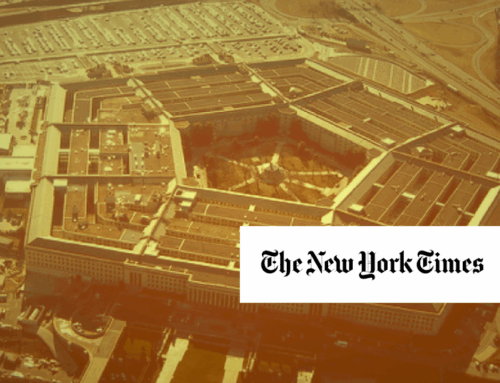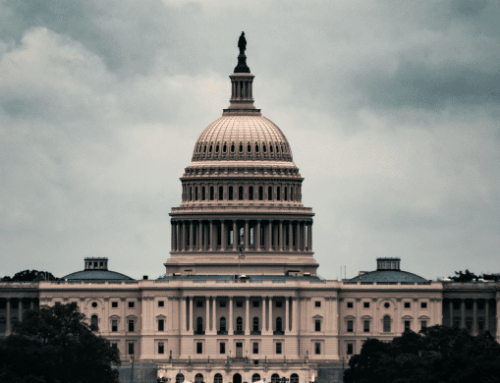Dear Senator,
As the Senate moves to consideration of S.2296, the National Defense Authorization Act for Fiscal Year 2026, Taxpayers for Common Sense, a national nonpartisan budget watchdog, urges you to support the following amendments to strengthen national security and protect taxpayer interests.
S.Amdt.3284 sponsored by Sen. Chris Murphy (D-CT)
This amendment would limit the availability of funds for space-based interceptors (SBIs) for the Golden Dome for America until the Secretary of Defense submits a report to congressional defense committees outlining specific elements, goals, procurement and research and development plans, and comprehensive cost estimates for the architecture of the Golden Dome missile defense system. The required report would also include an analysis of the technical feasibility of a comprehensive missile defense shield to protect the entire United States homeland, and an explanation of the recusal requirements, contracting safeguards, and oversight and accountability mechanisms in place to ensure the program’s rapid rollout does not allow for conflicts of interest.
The Congressional Budget Office (CBO) has reported that deploying and operating for 20 years a constellation of SBIs “designed to defeat one or two intercontinental ballistic missiles (ICBMs) fired at the United States by a regional adversary, such as North Korea,” could cost up to $542 billion. However, CBO underscored that this was not an estimate of the cost of SBIs for the Golden Dome. First, it noted that “North Korea’s ICBMs have increased in number and sophistication since those studies were published [more than a decade ago].” Second, it noted that “a recent executive order by the President, titled The Iron Dome for America, calls for deploying a missile defense system to protect the United States not only from attacks by regional adversaries (ones with limited capabilities, such as North Korea) but also from attacks by peer or near-peer adversaries (ones with military capabilities similar to those of the United States).” CBO concluded that “Such a defense could require a more expansive SBI capability,” and that further analysis would be necessary to assess the costs of such a system.[1]
Given that the costs of deploying and operating such a system for 20 years would likely far exceed CBO’s estimated cost of up to $542 billion for a less advanced system, and given the lack of clarity from the administration on the plan for developing SBIs for the Golden Dome, this amendment would ensure that funding for such a program is limited until Congress can assess whether such funding would offer taxpayers a fair return on investment.
S.Amdt.3300 sponsored by Sens. Mike Lee (R-UT) and Elizabeth Warren (D-MA)
This amendment would repeal the statutory requirements for components of the Department of Defense and the National Nuclear Security Administration to submit unfunded priority lists (UPLs) to Congress alongside the Department’s formal budget submission. DOD components could still submit UPLs, they simply would not be legally required to do so. The requirement for UPLs subverts the normal budget process by forcing military service leaders and combatant commanders to circumvent the Pentagon’s civilian leadership, which is responsible for assessing the Department’s budgetary needs in a holistic manner that accounts for funding needs across departments and commands. Despite military service leaders repeatedly requesting that nothing in their UPL submissions displace items included in the formal budget request, Congress routinely funds UPLs at the expense of real priorities included in the budget request.[2]
The price tag of UPL submissions has risen dramatically over the past six years. According to GAO, “Department of Defense (DOD) components submitted unfunded priorities to Congress totaling $134 billion from fiscal year 2020 through fiscal year 2025, an increase of 73 percent over the time frame when adjusted for inflation.”[3] In FY2026, UPLs totaled over $53 billion, nearly three times the cost of UPLs in FY2024, which totaled $18.4 billion.[4]
Repealing the statutory requirement for UPLs would not prohibit any DOD component from submitting UPLs in the future, but it would serve to reduce the number and cost of UPLs by limiting submissions to those made voluntarily. It would also serve to support DOD’s formal budget request by reducing instances of UPLs funded through cuts to priorities included in the formal budget request. Taxpayers and national security require a holistic, sustainable Pentagon budgeting process that provides for the national defense while accounting for fiscal realities. Repealing the requirements for UPLs would help advance such a process.
S.Amdt.3301 sponsored by Sens. Mike Lee (R-UT) and Elizabeth Warren (D-MA)
This amendment would adjust the requirements for Unfunded Requirements (UFRs), also known as Unfunded Priorities Lists (UPLs), to require budget-neutral submissions. To achieve this, the amendment requires submissions list proposed offsets and detail the account information with respect to each offset, including the line-item number for applicable procurement accounts, the program element for applicable research, development, test and evaluation accounts, and the sub-activity group for applicable operations and maintenance accounts. To improve transparency, the amendment would also require UFRs be posted online in a searchable format within 5 days of the submission.
As stated above, from FY2020 to FY2025, the price tag of UFRs rose by 73 percent when adjusted for inflation.[5] In FY2026, the price tag of UFRs rose to over $53 billion, nearly triple the amount requested in FY2024 ($18.4 billion).[6] Requiring UFRs to include proposed offsets would help mitigate the budgetary impact of these lists while still allowing Congress to fund UFRs as they see fit.
Furthermore, while military leaders who submit these wish lists routinely request that Congress not cut funding from the formal budget request in order to pay for UFRs, Congress routinely ignores them.[7] By requiring service leaders and combatant commanders to list offsets alongside each UFR, this amendment will help ensure that UFRs are not funded at the expense of greater priorities included in the budget request. Taxpayers and national security require a holistic, fiscally responsible approach to budgeting for national security, and this amendment would help advance such an approach.
S.Amdt.3790 sponsored by Sens. Bernie Sanders (I-VT) and Chuck Grassley (R-IA)
This amendment would require any component of the Department of Defense that fails to achieve an unqualified audit opinion to forfeit 2 percent of its budget allotment to the Treasury Department for deficit reduction. The Pentagon has repeatedly failed to receive clean audit opinions on each of its components, and failed to achieve such opinions on the timelines it has laid out for itself.[8] This requirement would create meaningful incentives for the Pentagon to improve its financial accounting processes in order to achieve clean audit opinions across the department’s components.
Sincerely,

Steve Ellis
President
[1] “Re: Effects of Lower Launch Costs on Previous Estimates for Space-Based, Boost-Phase Missile Defense.” Congressional Budget Office. May 5, 2025. https://www.cbo.gov/system/files/2025-05/61237-SBI.pdf
[2] Murphy, Gabe. “Pentagon Budgeting Shouldn’t Look Like This.” The Hill. June 1, 2024. https://thehill.com/opinion/congress-blog/4697854-pentagon-budgeting-shouldnt-look-like-this/
[3] “DOD Should Address All Statutory Elements for Unfunded Priorities.” United States Government Accountability Office. Sep. 4, 2025. https://www.gao.gov/assets/gao-25-107581.pdf
[4] “Pentagon Wish Lists Nearly Triple in Two Years.” Taxpayers for Common Sense. July 14, 2025. https://www.taxpayer.net/national-security/pentagon-wish-lists-nearly-triple-in-two-years/
[5] “DOD Should Address All Statutory Elements for Unfunded Priorities.” United States Government Accountability Office. Sep. 4, 2025. https://www.gao.gov/assets/gao-25-107581.pdf
[6] “Pentagon Wish Lists Nearly Triple in Two Years.” Taxpayers for Common Sense. July 14, 2025. https://www.taxpayer.net/national-security/pentagon-wish-lists-nearly-triple-in-two-years/
[7] Murphy, Gabe. “Pentagon Budgeting Shouldn’t Look Like This.” The Hill. June 1, 2024. https://thehill.com/opinion/congress-blog/4697854-pentagon-budgeting-shouldnt-look-like-this/
[8] “Pentagon Fails Audit for 7th Straight Year.” Taxpayers for Common Sense. Nov. 18, 2024. https://www.taxpayer.net/national-security/pentagon-fails-audit-for-7th-straight-year/










